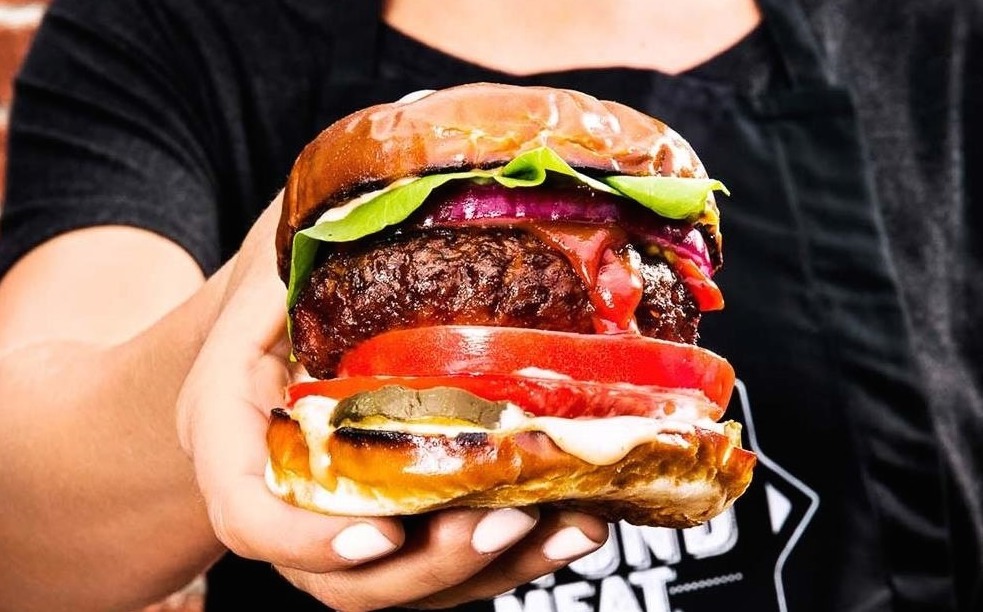Last month, following a legal battle between German based food company TofuTown and a consumer protection group, we learnt that the EU aren’t bending any time soon on the rules when it comes to plant-based products having dairy style names. Many consumers of animal products were happy with this ruling, not wanting plant-based products to be given similar names to animal products. Getting behind consumers, meat producers in the EU believe similar action needs to be taken against meat-style names being used for meatless products.
Nick Allen, CEO of the British Meat Processors Association has commented that “Meat is a product that comes from animals. Any use of the word in any other context is deceiving to the public.”
But when consumers are being given titles like Vegetarian Chicken Nuggets, or Cashew Cheese are they really being deceived? Are consumers also confused when purchasing peanut “butter”, chocolate “eggs” or coconut “meat”?
If you’ve seen Netflix documentary What The Health, you’ll know that many American groups giving advice on major diseases such as cancer and diabetes are spreading misleading information as to what it is to live a healthy lifestyle.
But what about labelling on the animal products themselves? Below are some examples of the ways in which the animal product industry might be deceiving consumers.
Free Range Eggs
Many people who eat eggs were happy with the banning of battery farms in the EU in 2012, despite the fact that caged hens are still permissible. Last year, around 50% of eggs consumed in the UK came from ‘Free Range’ sources, but what does Free Range really mean?
In order for egg producing hens to be classed as Free Range, farmers are required to have no more than nine hens per square metre, at least one drinker per 10 birds and 10cm of feeding space per bird.
Free Range farms are also required to have access to outdoor areas but often birds remain inside as the outdoor space they are given is not adequate for them. Hens are reluctant to venture outside if there is not sufficient tree coverage as they feel vulnerable to prey.
In addition to this, free range hens are bought from commercial hatcheries where killing male chicks at less that one day old is common practice. In fact, 6 million male chicks are killed worldwide every year as a result of the egg industry.
Free Range hens are also subject to painful practices such as debeaking. The label Free Range paints a very different picture to the reality.
Humane Meat
The Humane Slaughter Association claims that “slaughter can be humane if an animal is protected from avoidable excitement, pain or suffering” which seems a little confusing when killing animals in itself is entirely avoidable.
Ultimately, humane meat requires farmers and slaughterhouse workers to torture the animals as little as possible before the premature end to their life.
If you look at a dictionary definition of humane it can be described as ‘acting in a manner that causes the least harm to people or animals.’ Realistically if the world were farming humans the same ways in which we were farming animals we would not call the process humane. The impression given by this label is that cows, pigs and sheep are living their lives happily running around the countryside before they die of old age and are tenderly carried off before ending up on our plates. This is not the case.
Be Good To Yourself Range
As many supermarkets do, Sainsbury’s in the UK have a range of ready meals that are supposed to be the healthier option for consumers. This range in particular is labelled ‘Be Good To Yourself’ which suggests that eating the meals in that range will be good for your body. However, the range includes a lot of meat and cheese, including red meat like beef and processed meat such as ham.
The International Agency for Research on Cancer (IARC) has found that both red and processed meat are carcinogens, which means consumption of these products could lead to cancer. Surely products capable of producing such a negative consequence in consumers bodies should come with warning labels just like cigarettes do?
So if the meat industry are lying so frequently to meat eaters, why are meat eaters so upset by the concept of having plant-based products that use dairy or meat style names?
Well, in addition to the misinformation already discussed, time and again the public are forced to look at advertisements suggesting that animal products provide everything the human body can need, and in addition to this provide a great taste which simply cannot be obtained by eating any other kind of product. Consumers of animal products would most likely feel cheated if they were to realise half way through their packet of cheddar that is was derived from coconuts.
Ultimately, it seems there is one rule for the animal agricultural industry and another for promoters of plant-based alternatives. If it’s deemed misleading and confusing to use dairy and meat style names for plant-based products, then fine, but perhaps the meat and dairy retailers should be held a little more accountable for the information and impressions they give on their labels.


